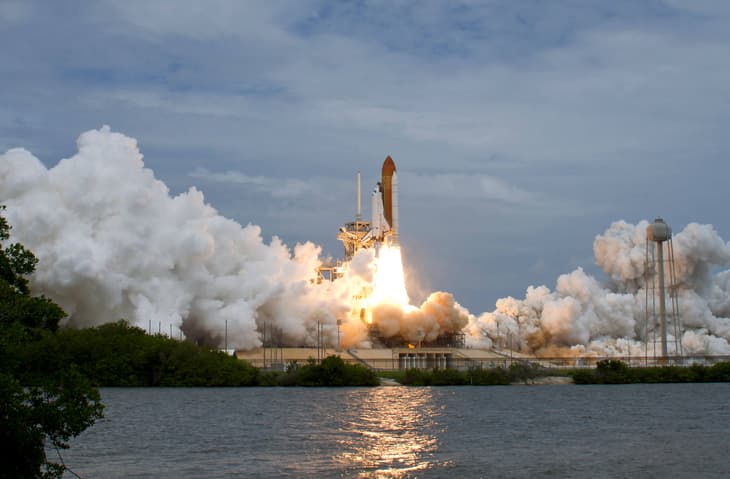It was exactly a decade ago that NASA’s Space Shuttle touched down for the final time in the US, signalling the end of one of the most successful space programmes in history. A ship like no other, the space shuttle launched like a rocket and landed back on Earth like a glider, transporting astronauts to space and back for 30 years.
The world’s first reusable spacecraft was comprised of four elements – the shuttle itself, also known as the orbiter, plus a pair of solid rocket boosters and a single external fuel tank. Perhaps most recognisable was the external tank, the familiar orange structure that dominates most images of the shuttle at liftoff. At more than 15-stories tall, it was the largest part of the shuttle stack.
Getting its signature orange colour from the foam insulation sprayed on the tank’s aluminium structure to keep the super cold propellants from evaporating too quickly and ice from building up on the outside, the tank’s main job was to supply around 535,000 gallons of super cold liquid hydrogen and liquid oxygen to the shuttle’s three main engines. Hydrogen and oxygen are one of the highest performance propellant combinations, and NASA’s use of it dates back even further than the Space Shuttle programme.
... to continue reading you must be subscribed






